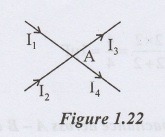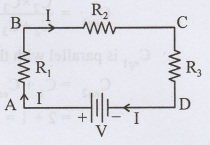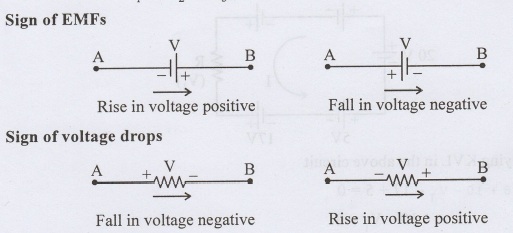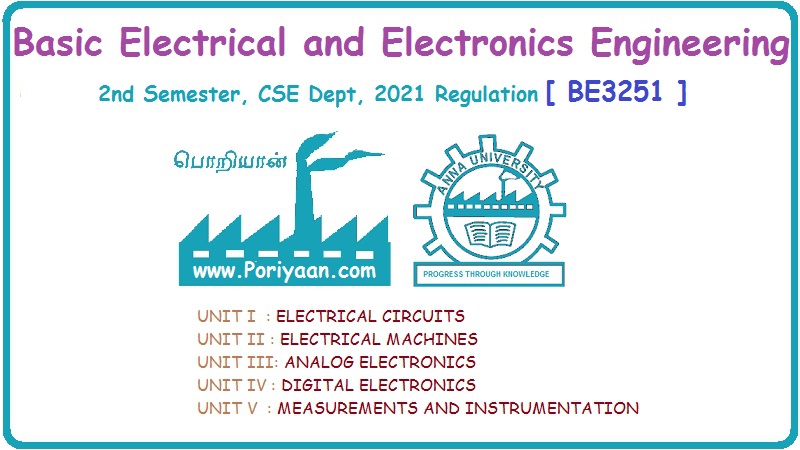Basic Electrical and Electronics Engineering: Unit I: Electrical Circuits
Kirchoff's Laws
Current, Voltage Law, Example Equation | Electrical Circuits
It states that the algebraic sum of the current meeting at a junction (or) node is equal to zero.
KIRCHOFF'S LAWS
Kirchoff's Current Law (Point law (or) First law)
It states that the algebraic sum of the current meeting at a junction (or) node is equal to zero. That is the sum of the currents flowing towards a junction is equal to the sum of the currents flowing away from it.
In figure 1.22, A is a junction formed by four conductors. The currents in these conductors are I1, I2, I3, I4. Some of the currents are flowing towards A and others away from it.

According to Kirchoff's law
I1 + I2 = 13 + 14
(or) I1 + I2 -I3 - I4 = 0
Kirchoff's Voltage law (Mesh law (or) Second law)
In a closed circuit, the sum of the potential drops is equal to the sum of the potential rises.
In fig 1.23 ABCDA form a closed circuit assume the current direction as shown from A to B, we have a potential drop of IR1 volts. Writing for the entire loop ABCDA, we have

Sum of potential drops = IR1 + IR2+ IR3
Potential rise from D to A = V
IR1 + IR2+ IR3 = V

Basic Electrical and Electronics Engineering: Unit I: Electrical Circuits : Tag: : Current, Voltage Law, Example Equation | Electrical Circuits - Kirchoff's Laws
Related Topics
Related Subjects
Basic Electrical and Electronics Engineering
BE3251 2nd semester Mechanical Dept | 2021 Regulation | 2nd Semester Mechanical Dept 2021 Regulation
Basic Electrical and Electronics Engineering
BE3251 2nd Semester CSE Dept 2021 | Regulation | 2nd Semester CSE Dept 2021 Regulation

